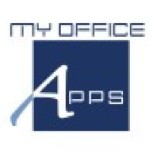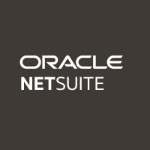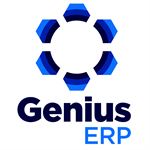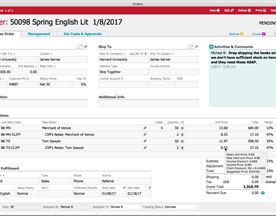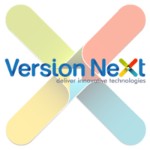Enterprise Resource Planning (ERP) software is a comprehensive business management solution that integrates various functions of an organization into a single, unified system.
ERP software streamlines and automates processes, consolidating data from various departments such as finance, human resources, sales, and supply chain management, among others.
This centralized approach improves data accuracy, enhances collaboration, and enables real-time insights, allowing businesses to make data-driven decisions and achieve operational efficiency.
Benefits of Using ERP Software
ERP software has become an essential tool for businesses of all sizes and industries, as it offers numerous benefits, including:
Improved Efficiency
By automating repetitive tasks and streamlining processes, ERP software helps to reduce manual workload, minimize errors, and increase productivity.
Enhanced Collaboration
With a centralized database, employees across different departments can easily access and share information, fostering collaboration and reducing communication bottlenecks.
Better Decision-Making
ERP systems provide real-time data and insights, allowing businesses to make informed decisions, identify trends, and respond to market changes swiftly.
Scalability
Modern ERP solutions are designed to grow with your business, making it easy to add new modules and features as your organization expands.
Cost Reduction
By optimizing processes and providing better visibility into operations, ERP software helps companies identify areas of inefficiency and cut unnecessary costs.

Key Factors To Consider When Evaluating Different ERP Software Options
Selecting the right ERP solution for your business is a critical decision that can significantly impact your organization’s success. Some of the key factors to consider when evaluating different ERP software options include:
Business Needs
Identify your organization’s specific requirements and prioritize them based on their importance to your operations.
Industry and Size
Choose an ERP solution that caters to your industry and is suitable for your company’s size, taking into account your future growth plans.
Scalability And Customization
Ensure that the ERP system can be easily scaled to accommodate your business’s growth and offers the flexibility to tailor its features to your unique needs.
Integration Capabilities
Assess the ERP software’s ability to integrate with your existing systems and applications, as well as any future technologies you plan to adopt.
User-Friendliness And Training
Look for a solution that is intuitive and easy to use, and provides comprehensive training and support to help your employees adapt to the new system.
Implementation And Support
Consider the vendor’s track record in implementing their ERP solution and the level of ongoing support they provide.
Cost And Return On Investment (ROI)
Compare the total cost of ownership, including implementation, licensing, and maintenance fees, and weigh it against the potential ROI of each ERP solution you’re considering.
Top ERP Software Solutions

SAP S/4HANA
SAP S/4HANA is a powerful, real-time ERP suite built on the advanced in-memory computing platform, SAP HANA. It offers a wide range of features, including finance, sales, procurement, manufacturing, human resources, and supply chain management. Key highlights include real-time analytics, embedded artificial intelligence, and machine learning capabilities, as well as seamless integration with other SAP products and services.
SAP S/4HANA caters to businesses of all sizes across various industries, including manufacturing, retail, healthcare, energy, and professional services, among others.
Pros and cons:
Pros:
Robust and scalable, suitable for large and complex organizations
Real-time analytics and embedded AI capabilities
Seamless integration with other SAP products and services
Cons:
Can be expensive, particularly for small and medium-sized businesses
Implementation may be complex and time-consuming
May require significant customization for specific industry needs

Oracle NetSuite
Oracle NetSuite is a cloud-based ERP solution designed to streamline business processes and improve operational efficiency. It offers a comprehensive suite of applications, including financial management, CRM, e-commerce, human capital management, and supply chain management. Key features include real-time data access, business intelligence capabilities, customizable dashboards, and a user-friendly interface.
Oracle NetSuite serves a broad range of industries, including wholesale distribution, retail, manufacturing, and professional services. It is suitable for small to large enterprises, with a focus on fast-growing, mid-market businesses.
Pros and cons:
Pros:
Cloud-based solution with high scalability and accessibility
User-friendly interface and customizable dashboards
Strong integration capabilities with other Oracle products and third-party applications
Cons:
Can be costly, especially for smaller businesses
Limited offline functionality
Customer support may not always meet expectations
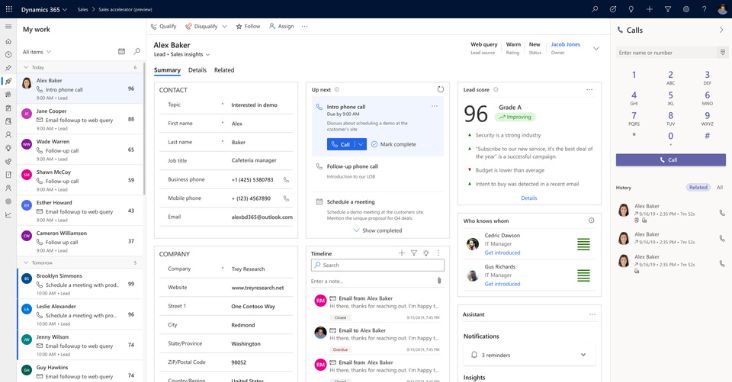
Microsoft Dynamics 365
Microsoft Dynamics 365 is a cloud-based ERP and CRM solution that seamlessly integrates with the Microsoft ecosystem, including Office 365, Power BI, and Azure. It offers modules for finance, supply chain management, sales, customer service, project operations, and human resources. Key features include AI-driven insights, advanced analytics, and robust security features.
Microsoft Dynamics 365 is suitable for businesses of all sizes across various industries, such as retail, manufacturing, healthcare, and financial services.
Pros and cons:
Pros:
Seamless integration with the Microsoft ecosystem
AI-driven insights and advanced analytics capabilities
Flexible and modular design, allowing businesses to choose the features they need
Cons:
Can be expensive for smaller businesses
Steeper learning curve for non-Microsoft users
Customization may require additional development resources
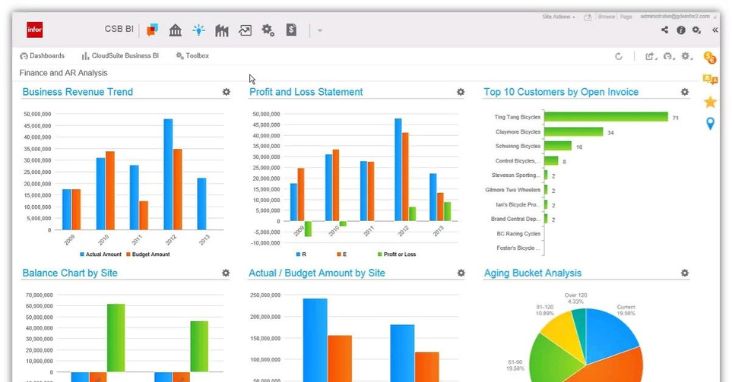
Infor CloudSuite
Infor CloudSuite is a cloud-based ERP solution designed to offer industry-specific functionalities and applications. It covers areas such as finance, human resources, supply chain management, and manufacturing. Key features include role-based dashboards, predictive analytics, and a flexible, scalable architecture.
Infor CloudSuite caters to various industries, including manufacturing, distribution, retail, and healthcare. It is suitable for small to large enterprises, with a focus on industry-specific needs.
Pros and cons:
Pros:
Industry-specific functionalities and applications
Role-based dashboards and predictive analytics
Flexible and scalable architecture, making it suitable for growing businesses
Cons:
Can be expensive for smaller businesses
May require additional customization and integration efforts
Customer support may not always meet expectations
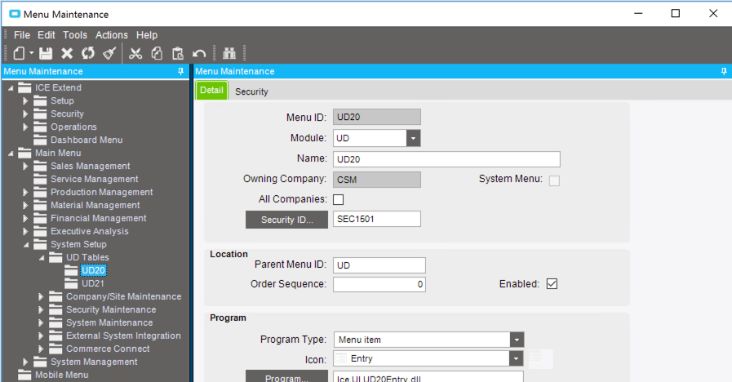
Epicor ERP
Epicor ERP is a comprehensive, scalable solution designed to help businesses improve efficiency, streamline processes, and drive growth. It offers modules for finance, manufacturing, supply chain management, CRM, and human capital management. Key features include real-time data access, flexible deployment options (cloud, on-premises, or hybrid), and industry-specific functionality.
Epicor ERP is suitable for small to large enterprises in various industries, such as manufacturing, distribution, retail, and services.
Pros and cons:
Pros:
Flexible deployment options (cloud, on-premises, or hybrid)
Industry-specific functionality tailored to business needs
Scalable and modular design, allowing for customization and growth
Cons:
Can be expensive, particularly for smaller businesses
Steeper learning curve for users unfamiliar with the system
Implementation and customization may require additional time and resources

Key Factors to Consider When Choosing ERP Software
Scalability And Customization
As your business grows and evolves, so do your requirements. When choosing an ERP solution, it’s essential to ensure that the system can scale to accommodate your organization’s expansion and changing needs. Look for a solution that can add new modules, features, or users as required. Customization is another critical factor, as every business has unique processes and requirements. The ideal ERP software should provide the flexibility to tailor its features to suit your specific needs, without incurring excessive costs or complexity.

Integration Capabilities
Your ERP system should work seamlessly with your existing and future software applications, tools, and technologies. When evaluating ERP solutions, examine their ability to integrate with your current systems and applications, as well as any new ones you may adopt in the future. Strong integration capabilities can streamline data flow between systems, reduce manual data entry, and prevent errors, thereby improving overall efficiency and productivity.

User-Friendliness And Training
An ERP system’s usability directly impacts the speed and ease of adoption by your employees. Choose a solution that features an intuitive and user-friendly interface, making it easier for your team to learn and use the system effectively. Additionally, consider the vendor’s training and support offerings. Comprehensive training materials, workshops, and ongoing support can help your employees adapt to the new system and maximize its benefits.

Implementation And Support
Implementing an ERP solution is a significant undertaking that can affect your organization’s operations and success. Assess the vendor’s track record in implementing their ERP solution, including the average implementation time, successful case studies, and any potential challenges or roadblocks. Additionally, consider the level of ongoing support the vendor provides, such as technical assistance, software updates, and access to a community of users for knowledge sharing and best practices.

Cost And Return On Investment (ROI)
The total cost of ownership for an ERP system includes not only the initial purchase price but also implementation, customization, training, and ongoing maintenance fees. When evaluating different ERP solutions, compare their costs and weigh them against the potential ROI. Consider factors such as improved efficiency, reduced manual workload, and enhanced decision-making capabilities, which can lead to cost savings and increased revenue. Choose a solution that offers the best value for your investment, keeping in mind your organization’s unique needs and growth plans.

Industry-Specific ERP Solutions
Manufacturing
Manufacturing ERP solutions are designed to address the unique challenges faced by manufacturers, such as production planning, inventory management, quality control, and compliance. These ERP systems typically include modules for material requirements planning (MRP), bill of materials (BOM), production scheduling, and shop floor control. Some popular manufacturing-specific ERP solutions include SAP S/4HANA for Manufacturing, Oracle NetSuite for Manufacturing, and Epicor Manufacturing ERP.
Retail
Retail ERP solutions cater to the specific needs of retailers, offering features such as point of sale (POS) integration, inventory management, e-commerce, and customer relationship management (CRM). These systems help retailers optimize their supply chain, manage multiple sales channels, and improve customer engagement. Notable retail-specific ERP solutions include Microsoft Dynamics 365 for Retail, Oracle NetSuite for Retail, and Infor CloudSuite Retail.
Healthcare
Healthcare ERP solutions focus on the unique requirements of healthcare organizations, such as patient management, electronic health records (EHR) integration, and regulatory compliance. These systems often include modules for financial management, human resources, supply chain management, and patient care. Some leading healthcare-specific ERP solutions are Oracle ERP Cloud for Healthcare, Infor CloudSuite Healthcare, and SAP S/4HANA for Healthcare.
Construction
Construction ERP solutions address the complexities of the construction industry, including project management, job costing, resource allocation, and contract management. These systems typically feature modules for estimating, scheduling, procurement, and financial management. Key construction-specific ERP solutions include Procore, Sage 300 Construction & Real Estate, and Viewpoint Vista.
Professional Services
Professional services ERP solutions are tailored to the needs of service-based organizations, such as consulting firms, law firms, and marketing agencies. These systems often include modules for project management, resource planning, time and expense tracking, and billing. Popular professional services-specific ERP solutions are Oracle NetSuite for Professional Services, Deltek Vision, and FinancialForce PSA.

Tips For A Successful ERP Implementation
Establish Clear Goals And Objectives
Before embarking on an ERP implementation, it is crucial to set clear goals and objectives that align with your organization’s overall strategy. Define what you hope to achieve with the new system, such as improved efficiency, better decision-making, or streamlined processes. Having a clear understanding of your goals will help guide the selection of the appropriate ERP solution and provide a benchmark for measuring the project’s success.
Involve Stakeholders And Create A Project Team
An ERP implementation impacts various departments within your organization, so it’s essential to involve key stakeholders from the beginning. Establish a cross-functional project team that includes representatives from each affected department, as well as a dedicated project manager to oversee the implementation process. This will ensure that all perspectives are considered, fostering a sense of ownership and buy-in from all involved parties.
Plan For Data Migration And Integration
Data migration is a critical aspect of an ERP implementation. Begin by identifying and assessing the quality of your existing data, and clean up any inaccuracies or inconsistencies. Develop a comprehensive data migration plan, outlining the process for transferring data from your current system to the new ERP software. Additionally, consider the integration of your ERP system with other applications and tools, ensuring a smooth flow of data between systems.
Train Employees And Provide Ongoing Support
Employee training is vital to the successful adoption of your new ERP system. Develop a training plan that covers both the technical aspects of the system and the changes in business processes. Use a combination of training methods, such as workshops, webinars, and online resources, to ensure that all employees have access to the information they need. Provide ongoing support through helpdesks, user communities, and regular check-ins to address any concerns or challenges that may arise.
Monitor Progress And Measure Success
Throughout the ERP implementation process, continuously monitor the project’s progress to ensure that it stays on track and aligns with your initial goals and objectives. Establish key performance indicators (KPIs) to measure the success of the implementation, such as efficiency gains, cost savings, or improvements in decision-making. Regularly review these KPIs and adjust your implementation strategy as needed to address any issues or areas of concern.

Conclusion
In today’s highly competitive and rapidly evolving business environment, having the right ERP software can make a significant difference in an organization’s success. As we’ve explored in this article, there are several top ERP software solutions available, each with its own unique features and capabilities tailored to various industries and business sizes. In this conclusion, we will recap the top ERP software solutions, highlight the importance of selecting the right ERP software for your business, and encourage you to research and evaluate options based on your unique business needs.

Recap Of The Top ERP Software Solutions
Throughout this article, we have discussed some of the best ERP software solutions in the market today. These include SAP S/4HANA, Oracle NetSuite, Microsoft Dynamics 365, Infor CloudSuite, and Epicor ERP. Each of these solutions offers a range of features and functionalities designed to help businesses streamline their operations, improve efficiency, and drive growth.
SAP S/4HANA, for example, is a powerful and scalable solution that is ideal for large and complex organizations. It offers real-time analytics, embedded artificial intelligence, and seamless integration with other SAP business products and services. Oracle NetSuite, on the other hand, is a cloud-based ERP solution known for its user-friendly interface, customizable dashboards, and strong integration capabilities. Microsoft Dynamics 365 is another popular choice, offering seamless integration with the Microsoft ecosystem, AI-driven insights, and a flexible, modular design.
Infor CloudSuite and Epicor ERP both offer industry-specific functionalities and applications, making them ideal for organizations with unique needs in sectors such as manufacturing, retail, healthcare, construction, and professional services. Both solutions provide scalable and modular designs, allowing businesses to customize their enterprise resource planning systems to suit their specific requirements.
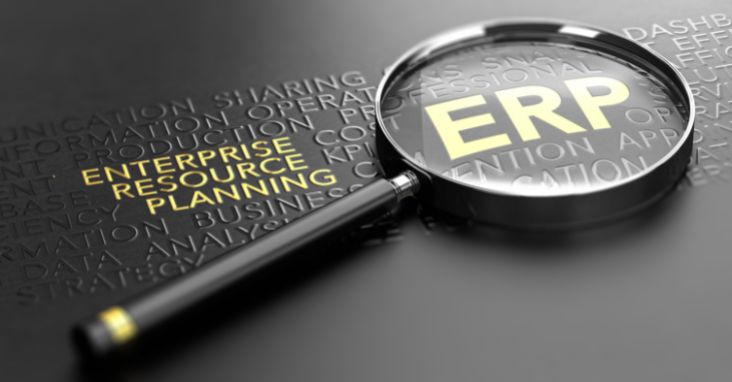
The Importance Of Selecting The Best ERP Software For Your Business
Selecting the right ERP software is crucial for your business, as it can impact your organization’s efficiency, productivity, and overall success. The right ERP solution can streamline your business processes, improve decision-making through better data access and analysis, and enhance collaboration among different departments within your organization.
Additionally, the right ERP software can help you stay competitive in an ever-changing business landscape by providing the tools and insights necessary to quickly adapt to new market conditions, customer demands, and regulatory requirements. Furthermore, an ERP system that aligns with your unique business needs can lead to cost savings, improved customer satisfaction, and increased revenue.

Encouragement To Research And Evaluate Options Based On Unique Business Needs
Given the importance of selecting the right ERP software for your business, it is essential to carefully research and evaluate different options based on your organization’s unique needs and requirements. This process should involve a thorough assessment of various factors, such as scalability and customization, integration capabilities, user-friendliness, implementation and support, and cost and return on investment (ROI).
It’s also essential to consider the specific needs of your industry when evaluating enterprise resource planning software. For example, if you are in the manufacturing sector, you may want to prioritize solutions that offer robust production planning, inventory management, warehouse management and quality control features. Similarly, if you are in the retail industry, you may want to focus on solutions that provide strong e-commerce and customer relationship management capabilities.
As you research and evaluate different ERP software options, it’s crucial to involve key stakeholders from across your organization. This will ensure that all perspectives are considered and will help foster a sense of ownership and buy-in from everyone involved in the ERP implementation process.
In conclusion, the journey to finding the perfect ERP software system for your business may seem daunting, but it is a critical step in ensuring the long-term success and competitiveness of your organization. By carefully researching and evaluating different ERP solutions based on your unique business needs and involving key stakeholders throughout the process, you can find the ideal.
Compare hundreds of Best ERP Software in our Software Marketplace


